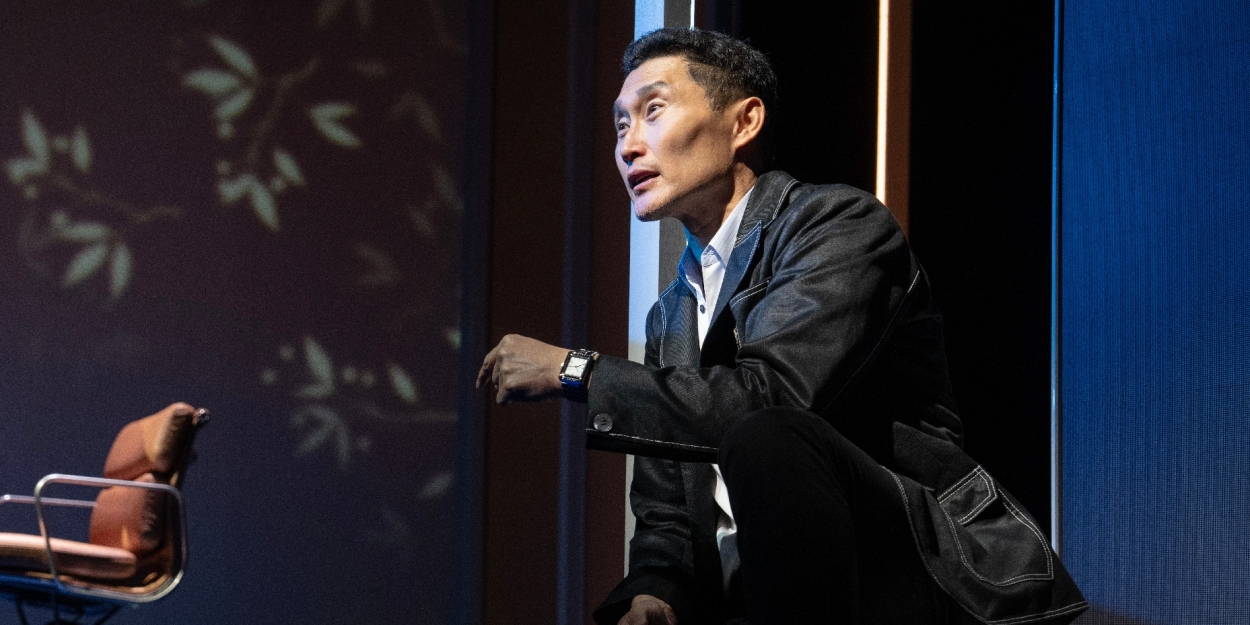How Common Are Autobiographical Plays and Musicals?
Jennifer Ashley Tepper Is answering your questions with Broadway Deep Dive!

Do you have a burning Broadway question? Dying to know more about an obscure Broadway fact? Broadway historian and self-proclaimed theatre nerd Jennifer Ashley Tepper is here to help with her new series, Broadway Deep Dive. Every month, BroadwayWorld will be accepting questions from theatre fans like you. If you're lucky, your question might be selected as the topic of her next column!
Submit your Broadway question in the comments here!
This time, the reader question was: With Yellow Face on Broadway, have there been other semi-autobiographical shows on Broadway where the writer made themself a character?
While there are many plays and musicals that are based on real people, it is more rare for a dramatist to explicitly make themselves a character in the action. This is the case with David Henry Hwang’s Yellow Face which is currently playing at the Todd Haimes Theatre.
Yellow Face chronicles Hwang’s experience protesting a white actor being cast in a Eurasian role in Miss Saigon, followed by his experience creating a related play called Face Value. Yellow Face is meta-theatrical to the extreme; it is a show about a show that is about protesting a show. In dramatizing real-life events, Hwang pulls back the curtain on the nuance and hypocrisy on all sides of a complicated situation involving race, with insight and hilarity. The cast of Yellow Face plays a variety of characters who are all real people as well, from Jane Krakowski (who appeared in Face Value) to New York Times critic Frank Rich to Hwang’s own father, prominent banker Henry Y. Hwang.
While the show is semi-autobiographical, and the central character, portrayed brilliantly by Daniel Dae Kim, is literally named David Henry Hwang, Yellow Face is a dramatization and thus takes artistic liberties, combining certain situations and fictionalizing some moments. As the playwright himself has said, the play is “an unreliable memoir”. The current Broadway production marks Yellow Face’s Broadway bow, since the show originally played off-Broadway in 2007.
]The 2020 Pulitzer winner and 2022 Tony Award winner for Best Musical A Strange Loop, with book, music, and lyrics by Michael R. Jackson also falls into this category of autobiographical show with the writer as a deliberate character. While the central character of A Strange Loop is named Usher and not Michael, the show is explicitly autobiographical. (Like Usher, Jackson shares his name with a music superstar; the character name is also a nod to his job as an usher at The Lion King on Broadway.) The title is self-referential; the show is about a Black queer man writing a musical about a Black queer man writing a musical. Like Yellow Face, not only is the writer a character in his own stage piece, but there is a show within a show. While the genius A Strange Loop could not be more different from Yellow Face in terms of story specifics, like that show it also involves familial relationships in addition to an inside look at the show business strivings of a theatre writer.

Another autobiographical show with writers who put themselves directly in the story, sharing the struggles of creating musicals is [title of show] which played Broadway in 2008. Unlike Yellow Face and A Strange Loop where the writer is a character in their own piece but a separate actor portrays them on stage, [title of show] found the writers playing themselves in the original production. Jeff Bowen who wrote the music and lyrics and Hunter Bell who wrote the book played Jeff and Hunter in this inspiring, funny, and scrappy musical about two writers writing a musical (about two writers writing a musical).
Co-composer, lyricist, and book writer Stew was also a presence on stage in addition to being a character in the story for his coming-of-age musical Passing Strange on Broadway in 2008. Also a show that intersects life as an artist with family life, Passing Strange starred Stew as the Narrator while another actor played the younger version of himself. Interestingly, in licensed versions of Passing Strange that do not feature a performance from Stew, the role of the Narrator has been excised.
Another loosely autobiographical musical on Broadway in the 2000s was Everyday Rapture. Beloved Broadway actress Sherie Rene Scott was the co-book writer of this show fictionalizing her own life stories that also featured Scott on stage playing herself. Like A Strange Loop and Yellow Face, Everyday Rapture is heavily focused on the central character, with others revolving in orbit around them within the story. Unlike any of the other musicals discussed here, Everyday Rapture’s score consists of existing songs not written explicitly for the show.
Everyday Rapture is practically a one-person show but with three other characters on stage. (The show is mega-focused on Scott.) But there are a number of actual one-person shows featuring the monologuist/ playwright playing themself to varying degrees, which have experienced success on and off Broadway over the years, including the works of John Leguizamo, Eric Bogosian, and Anna Deveare Smith. As originally conceived during his lifetime, Jonathan Larson’s tick, tick… BOOM! was a one-person autobiographical musical in this same vein, where Larson himself would have played all characters.

Lisa Kron played herself, named as such, in her play Well, which played Broadway in 2006. The piece about mother-daughter relationships and illness/wellness, found Kron direct addressing the audience and examining the complexities of her connection to her mom’s health. A meta-theatrical and experimental piece, Well shares some tonal similarities with Yellow Face, asking the audience to question what is truth and what is dramatization. Also an autobiographical play about mother-daughter relationships, Mother Play by Paula Vogel premiered on Broadway in 2024. Unlike Well, the playwright was not seen on stage; Celia Keenan-Bolger played Martha, based on Vogel herself.
While there are many jukebox musicals that chronicle the life of a real life figure by utilizing their songs, not many can boast new writing contributions from the figure in question who is actually in the room for the production. Taboo though, on Broadway in 2004, was originally conceived by Boy George, who played the role of Leigh Bowery as another actor (Euan Morton) played the character of George, a fictional version of Boy George himself.
One of our greatest living dramatists whose work often includes autobiographical elements is William Finn. Perhaps his two most autobiographical staged musicals are A New Brain and Elegies: A Song Cycle, which both played the Mitzi Newhouse at Lincoln Center, in 1998 and 2003 respectively. A New Brain is Finn’s take on his own illness that almost took his life, and on the relationships that surrounded him at the time. The central character of Gordon Schwinn is a thinly veiled stand-in for Finn. Elegies: A Song Cycle is Finn’s stunning collection of songs each written in remembrance for someone who has died. The show is vibrant and unbelievably moving; it is filled with real-life characters and numbers where Finn himself is one of them.
The stage masterwork The Glass Menagerie (1944) is widely considered to be Tennessee Williams’ most autobiographical work. The character of Tom, who has to navigate delicate relationships with his domineering mother and fragile sister, is based on Williams himself, whose birth name was Tom.
In fact, several of the great playwrights of the mid-20th century on Broadway have one majorly autobiographical work that sits in a similar place in their oeuvre as The Glass Menagerie for Williams. Kenneth Lonnergan’s The Waverly Gallery (2000) is also an early-career memory play about family relationships that is considered the playwright’s most autobiographical work. Of course, Eugene O’Neill’s masterwork Long Day’s Journey Into Night (1956) is his famously autobiographical family opus with the character of Edmund standing in for the playwright. Long Day’s Journey takes place at the O’Neill’s family home, which in actuality is now part of the Eugene O’Neill Theater Center. After The Fall (1964) is Arthur Miller’s autobiographical take on his marriage to Marilyn Monroe, but the characters and facts are too fictionalized to fit the show into a box with some of the others here. Broadway finally got to see Ohio State Murders in 2022, one of several semi-autobiographical works with a central character based on herself by the great Adrienne Kennedy. Neil Simon, Terrence McNally, Wendy Wasserstein, and several of our other greatest 20th century playwrights also contributed significant autobiographical flavor to multiple pieces in their canons. August Wilson performed his wholly autobiographical one-man play, How I Learned What I Learned himself when it premiered in 2003.
Comments



